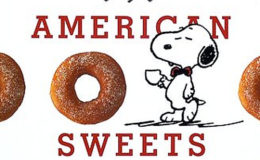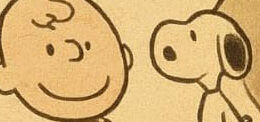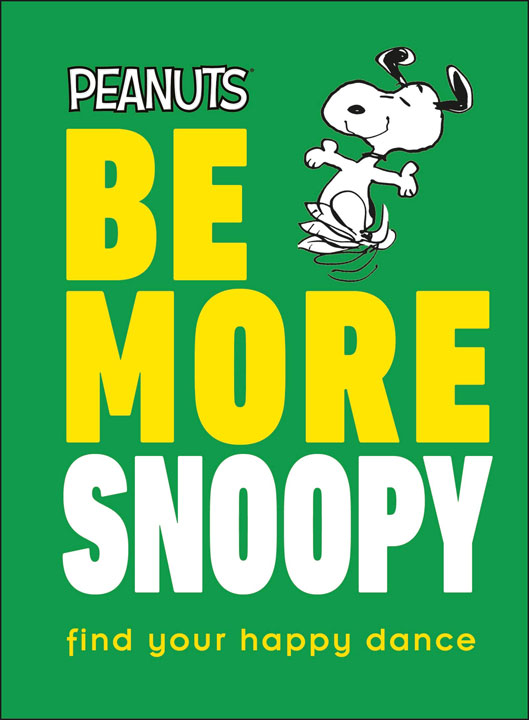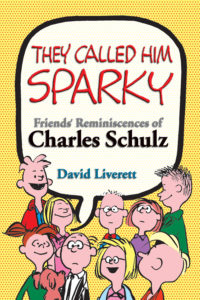Things that should not go unsaid, and telling the tales of the times
- By : Nat
- Category : General, Nat news, Now shipping
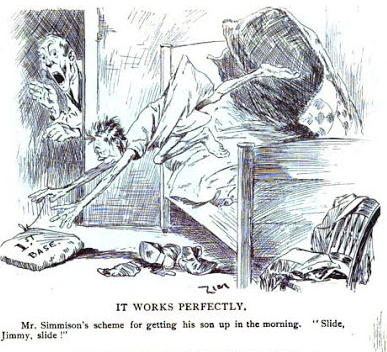
Back in May 2017, in posting about the way Google book search finds the word “Snoopy” in places where it isn’t actually there, I posted one place it found where it was: this cartoon.
Now, I didn’t point out the ultra-Peanutsiness of the fact that it’s not just Mr. Snoopy, but also Miss Brown, so Sally and the family beagle are by implication off panel in this universe. (And if young Mose wasn’t on panel, it would suggest a whole secondary strip universe, where all the adults are seen by kids and dogs are invisible.) But that’s not what I’m talking about. I should’ve noted something that was obvious to me but might not be to those who aren’t used to looking at old imagery.
This is an anti-semitic cartoon.
Note the noses of the two adults wearing the borrowed clothes have big noses and very dark hair, both in contrast to the third adult in the room. The kid’s name, “Mose,” suggests the name Moses, which is not strictly a Jewish name (basketball star Moses Malone wasn’t Jewish) but is common there, sometimes in the form of Moshe or Moishe. The use of “fader” and “mudder” invoke a Yiddish accent. The man’s hair style (and lack of it) also goes along with standard antisemitic caricature. This pair of untrustworthy… tailors? launderers?… are meant to be clearly Jews.
Now, this cartoon is from the September 1902 issue of the humor magazine Judge’s Library (a monthly tie-in to the weekly Judge, which would run through World War II), and it reminds us that not only such caricatures existed at the time, but were mainstream. Now, it not just Jews who are targeted; for example, this cover image is about the kindest that African Americans get treated in this issue.
Old cartoons tell the tales of their times, and what the viewpoint was like.
I’ve been thinking about this lately, because I’ve just reprinted a book that intentionally tells the tale of its time. Wasn’t the Depression Terrible?, primarily by cartoonist Otto Soglow (best know for his series The Little King), was a book of cartoons about the Great Depression that was issued in 1934, while that calamity was still raging. (The title is intentionally ironic; it’s actually a slogan that the Republicans used during the election season of 1932; it failed to convince either the voters or the economy that the depression was actually over.) The book gives us angels on the working class…
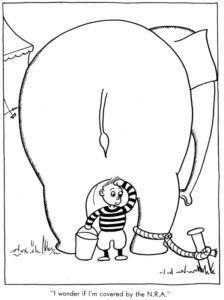
And on the falling upper class…
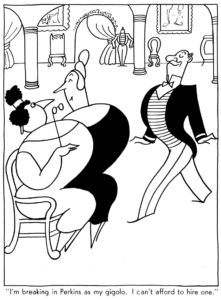
…and the conflicts between capital and labor, and the basic little struggles of no money, and of the politics of the time. It’s got is own viewpoint on the moment, but it is very much from the moment. I love things that tell you about their time, which is why I reprinted it. (Available from Amazon for a mere $9.99.)
Sorry if I rambled too far from the vaguely Peanuts start of this post; sometimes I write such things when I’m having trouble sleeping.


